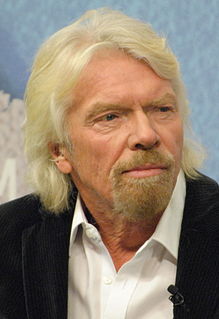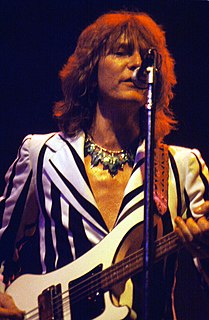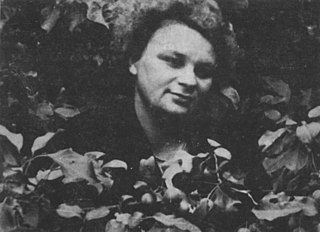A Quote by Paul Auster
For example, when I was writing Leviathan, which was written both in New York and in Vermont - I think there were two summers in Vermont, in that house I wrote about in Winter Journal, that broken-down house... I was working in an out-building, a kind of shack, a tumble-down, broken-down mess of a place, and I had a green table. I just thought, "Well, is there a way to bring my life into the fiction I'm writing, will it make a difference?" And the fact is, it doesn't make any difference. It was a kind of experiment which couldn't fail.
Quote Topics
About
Any
Both
Bring
Broken
Building
Difference
Down
Example
Experiment
Fact
Fail
Fiction
For Example
Green
Had
House
Journal
Just
Kind
Leviathan
Life
Make
Make A Difference
Mess
My Life
New
New York
Out
Place
Shack
Summers
Table
Think
Thought
Tumble
Two
Vermont
Way
Well
Were
Which
Will
Winter
Working
Writing
Written
Wrote
York
Related Quotes
I say at the very end of "Winter Journal" that I do dream about my father often. I think I have a tremendous compassion for him, which has grown over the years. A certain kind of pity for him also in that he was so unrealised as a human being, so dogged, and so shut-off from people in many ways. You know, I've been writing another book, and it's another non-fiction autobiographical work, kind of a compliment to "Winter Journal", and it's just finished.
I love living in Vermont and I love living in New York. Does my love for Vermont give us the right to rain bombs down on Tripoli? Of course not. There are exceptional qualities about the United States. But it doesn't give us the right to impose our will on other cultures when they often don't want it.
I remember the first joke that I made, which went over terribly. I was at my cousin's birthday party in Brooklyn. I was a little kid and she was a little older. They were going around introducing themselves; I was probably four, and I was very eager to impress all of these older New York kids. They went down the line and were like, "I'm Jake," "I'm Jane," "I'm Silvia," and I said, "I'm hungry," because I thought that was really going to bring the house down.
My father's father wrote for a Philadelphia newspaper and aspired to be a playwright. We had in our house a couple of crazy unproduced plays that he had written. For the one creative writing class I took in my life, I didn't do any writing - I decided that I would plagiarize his terrible play to not fail the class.
I think all writing is about writing. All writing is a way of going out and exploring the world, of examining the way we live, and therefore any words you put down on the page about life will, at some level, also be words about words. It's still amazing, though, how many poems can be read as being analogous to the act of writing a poem. "Go to hell, go into detail, go for the throat" is certainly about writing, but it's also hopefully about a way of living.
Writing down your thoughts is both necessary and harmful. It leads to eccentricity, narcissism, preserves what should be let go. On the other hand, these notes intensify the inner life, which, left unexpressed, slips through your fingers. If only I could find a better kind of journal, humbler, one that would preserve the same thoughts, the same flesh of life, which is worth saving.
I think a bigger difference with social media is going to be things like the impact Instagram will have for historians. For the longest time, we had no images of the past. And then when we had the advent of the camera, we had a record of the things people chose to photograph, which, for a while, were portraits of your family, a new building we built, or a really big horse. Well now we have images of everything. That will be the biggest difference I think - that we will have a visual record of this reality in a way that will be completely covered.


































